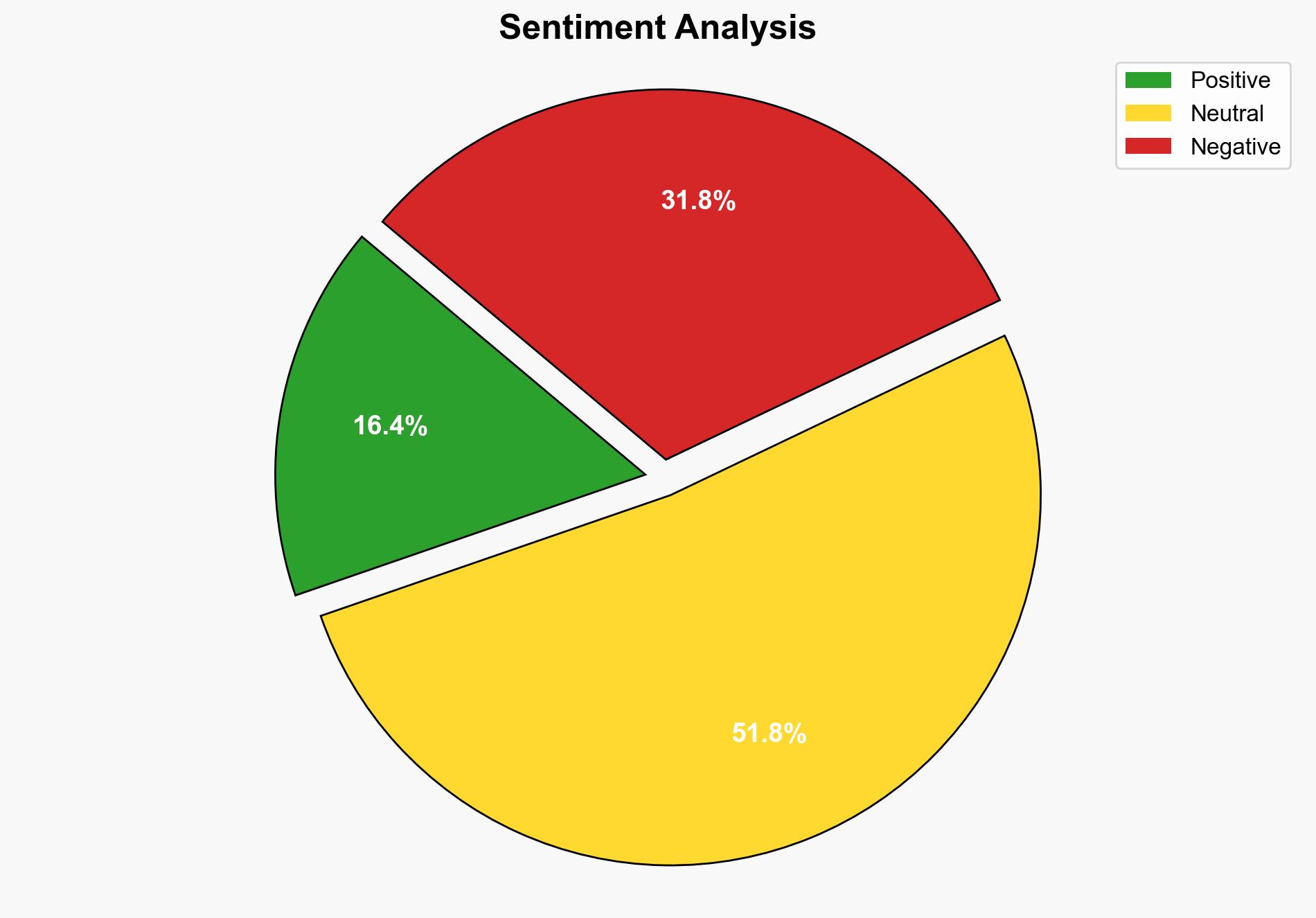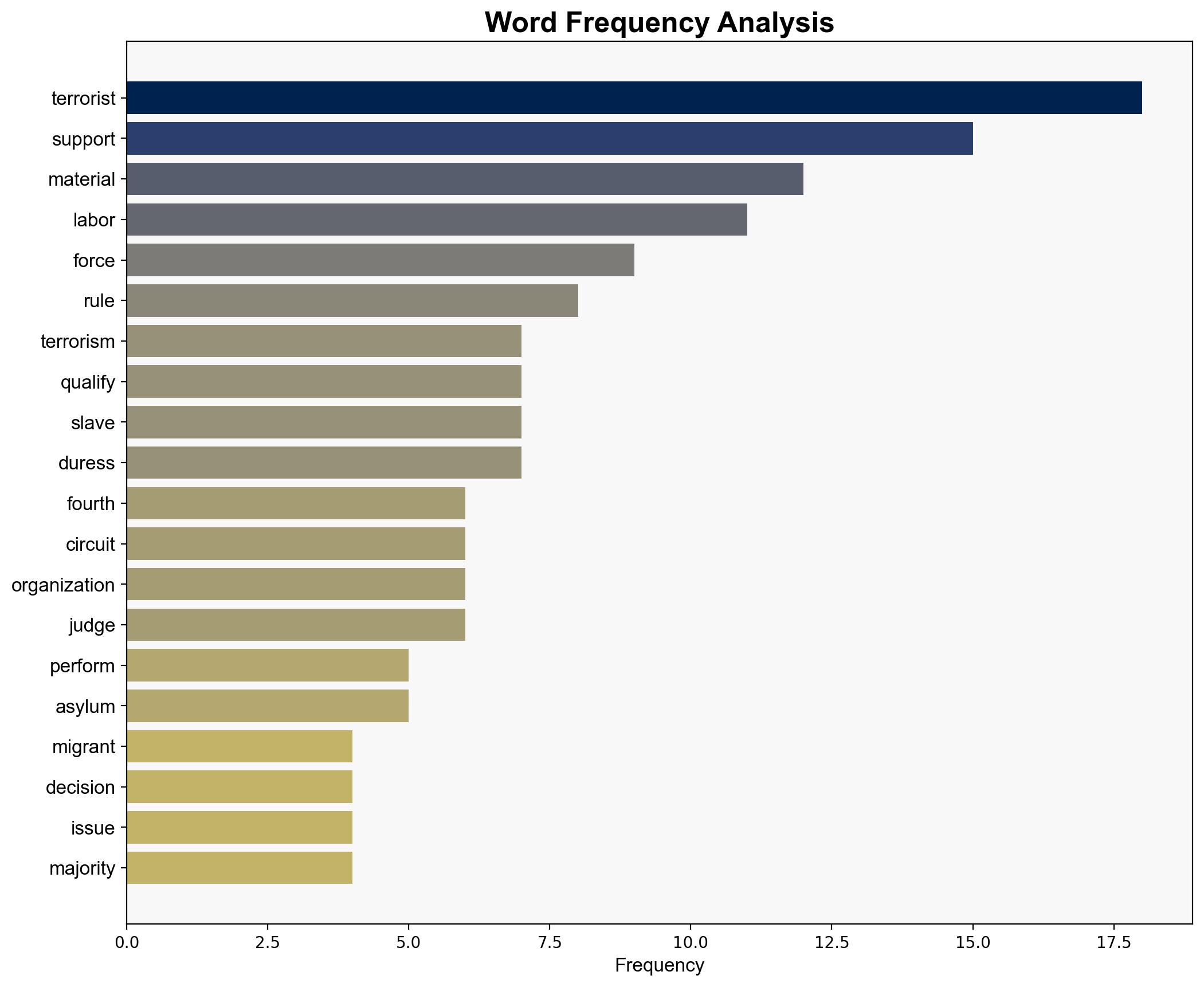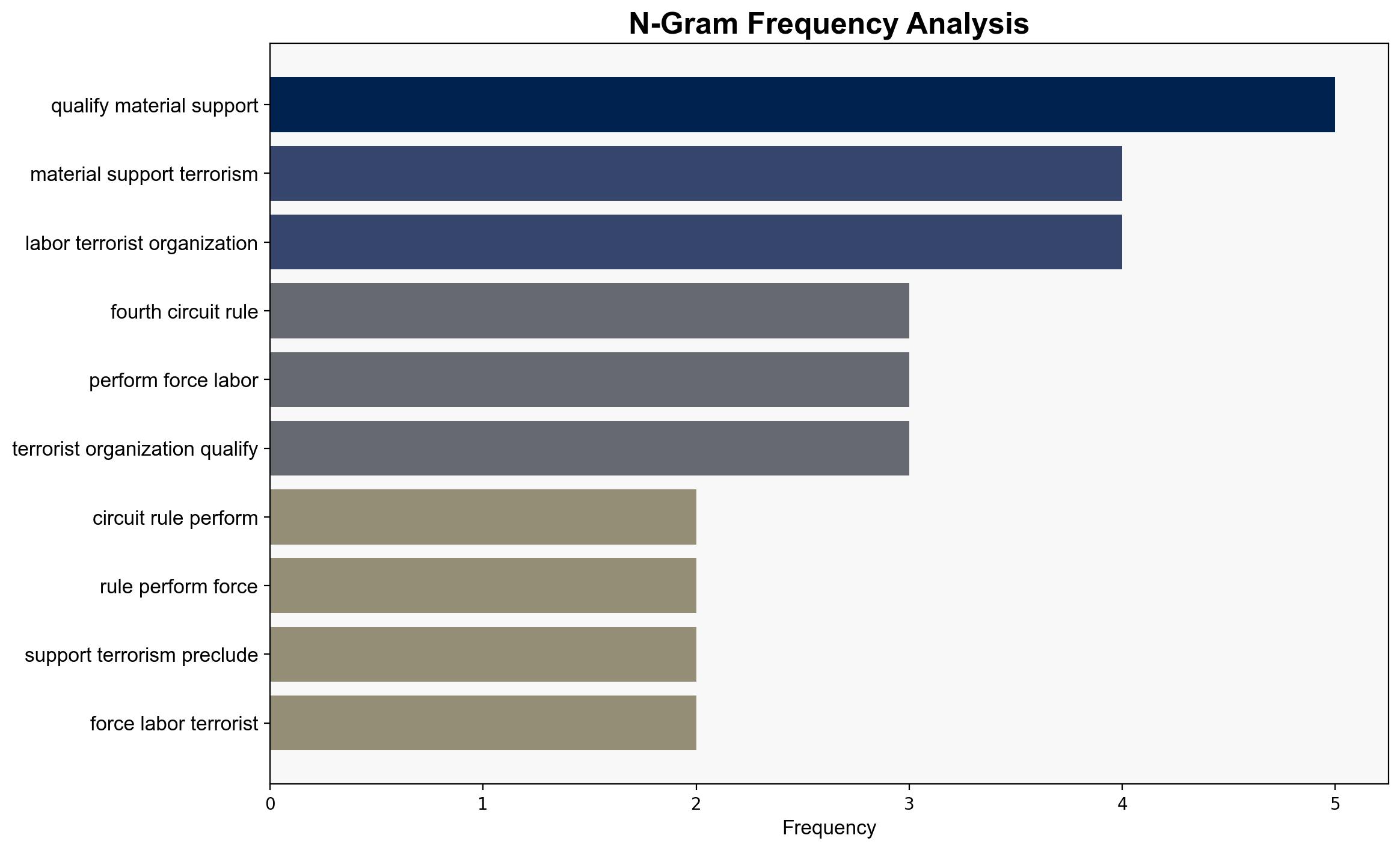Fourth Circuit Rules Performing Forced Labor as a Cook for a Terrorist Organization Does Not Count as Material Support for Terrorism that Precludes a Migrant From Getting Asylum – Reason
Published on: 2025-09-11
Intelligence Report: Fourth Circuit Rules Performing Forced Labor as a Cook for a Terrorist Organization Does Not Count as Material Support for Terrorism that Precludes a Migrant From Getting Asylum – Reason
1. BLUF (Bottom Line Up Front)
The Fourth Circuit’s ruling that forced labor as a cook for a terrorist organization does not constitute material support for terrorism, thus not barring asylum, presents a nuanced legal interpretation with significant implications. The most supported hypothesis is that this decision reflects a legal distinction between voluntary support and coerced actions under duress. Confidence in this hypothesis is moderate due to potential legal and policy challenges. Recommended action includes monitoring similar cases for precedent and reassessing asylum policies to address forced labor under duress.
2. Competing Hypotheses
1. **Hypothesis A**: The ruling is primarily a legal interpretation distinguishing between voluntary support and coerced actions, aiming to protect victims of forced labor from being unfairly penalized.
2. **Hypothesis B**: The ruling inadvertently creates a loophole that could be exploited by individuals with genuine ties to terrorist organizations to gain asylum under the guise of forced labor.
Using ACH 2.0, Hypothesis A is better supported by the court’s emphasis on the nature of coercion and the absence of voluntary intent. Hypothesis B, while plausible, lacks direct evidence of exploitation patterns in the current context.
3. Key Assumptions and Red Flags
– **Assumptions**: The court assumes that forced labor under duress is fundamentally different from voluntary support. It also presumes that existing legal frameworks can adequately differentiate between coerced and voluntary actions.
– **Red Flags**: Potential for misinterpretation of the ruling by asylum seekers and legal advisors. Lack of clarity on how this ruling aligns with international counter-terrorism standards.
4. Implications and Strategic Risks
The ruling could influence asylum policy and legal interpretations of material support for terrorism. It may lead to increased scrutiny of asylum claims involving forced labor. There is a risk of policy misalignment with international counter-terrorism efforts, potentially affecting diplomatic relations and cooperation.
5. Recommendations and Outlook
- Monitor subsequent legal cases to assess the ruling’s impact on asylum claims and potential exploitation.
- Engage with international partners to ensure alignment of legal standards regarding forced labor and terrorism.
- Scenario Projections:
- Best: Legal clarity leads to fairer asylum processes for victims of forced labor.
- Worst: Exploitation of the ruling by actual terrorist affiliates, undermining national security.
- Most Likely: Gradual adaptation of asylum policies to incorporate considerations of duress and coercion.
6. Key Individuals and Entities
– Izuchukwu Ozurumba: Nigerian migrant involved in the case.
– Judge Andrew Wynn: Majority opinion author.
– Judge Julius Richardson: Dissenting opinion author.
7. Thematic Tags
national security threats, counter-terrorism, asylum policy, legal interpretation





